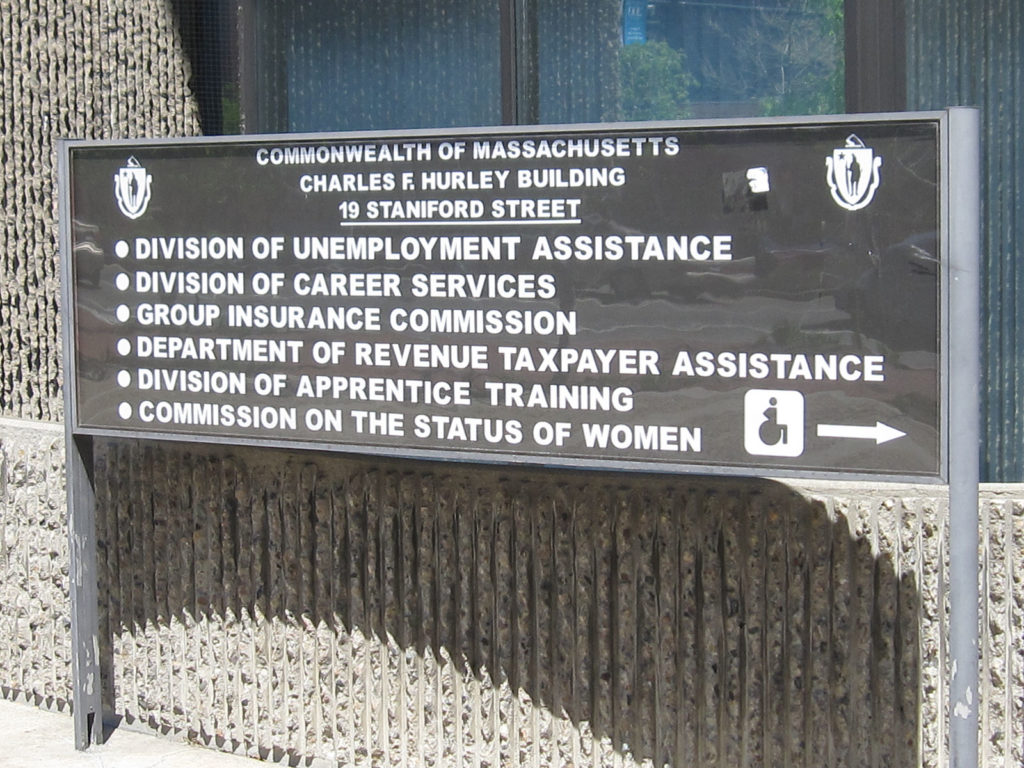Recipients of Pandemic Unemployment Assistance — known as PUA — received a “fact-finding” letter this past March demanding proof of their unemployment claims. Now millions are at risk of losing this assistance as they scramble to prove they needed the money they have been surviving on for months.
In Massachusetts, many were told they owed money back to the state for misrepresenting their unemployment status. Others had their payments put on hold. Only some were able to provide enough documentation to continue receiving payments.
“I had received thousands of dollars, and had also spent quite a bit on rent and necessary financial moves,” said Hannah, a Massachusetts resident who relies on PUA. “I was stressed that upon deeming me ineligible for some reason, they would take the money that they had paid me, and then I would be thousands of dollars in debt.”
More support from social media than from the government
PUA was created by the Coronavirus Aid, Relief, and Economic Security Act in March 2020. It is a program to provide financial assistance to people who are both unable to work due to the pandemic and are also not eligible for unemployment insurance. This includes gig workers and freelancers, among others. Oftentimes, these workers don’t have the right documentation, which makes this “fact-finding” process impossible for many.
Hannah’s story is not unique. The Continued Assistance Act that was signed into law by former President Donald Trump in December of last year requires that any individual receiving PUA benefits after December 27, 2020, is required to provide documentation.
That means more than 260,000 recipients of PUA in Massachusetts alone are being forced to prove again that they need assistance. Nationally, it’s more than ten million. And neither of those numbers account for all those who applied and still have not received any assistance in the first place.
Shortly after the COVID-19 pandemic shutdowns began, Massachusetts residents created Facebook groups to help each other navigate the convoluted unemployment system. Now these groups are full of questions from people trying to understand the vague “fact-finding” request. These groups have thousands of members and are one of the only places to find reliable information on how to stay eligible for benefits.

“I’ve been feeling a lot of frustration for my community, being in these Facebook groups and seeing mothers posting and being like ‘I can’t pay this back,’ worried about groceries, worried about their kids, worried about rent, worried about evictions,” another Massachusetts resident told Liberation News, who asked to remain anonymous because she is still waiting to hear back about her PUA. “That is just so wrong. It’s very clear that the government has the funds to support everyone in a time like this.”
Fraud: a fabricated crisis
These “fact-finding” notices are not only arriving in the mailboxes of Massachusetts residents. According to the Department of Unemployment Assistance, this “fact-finding” is part of an effort to address “fraud nationwide.” The Department of Justice and mainstream media outlets have corroborated this narrative, publishing sensationalist articles about rare instances of PUA fraud, and reports from the FBI.
“Protecting the integrity of the unemployment system and ensuring benefits are going only to valid claimants is the top priority of the Department of Unemployment Assistance,” said Labor and Workforce Development Secretary Rosalin Acosta in an article from May of last year. “While the program integrity measures we are taking will unfortunately mean that some claimants will experience temporary delays in payment, we believe these steps are necessary to respond to this unemployment scam.”
If stopping rare scams is their “top priority,” it’s obvious that the lives of working and poor people are not.
Unemployment: the real crisis
The COVID-19 pandemic is still a major crisis for the Massachusetts working class. State unemployment peaked at 16.4% in April 2020. That number has lowered to 7% as of March 2021, around 270,000 people. But that is still staggering in comparison to 2.7%, the unemployment rate right before the the mass layoffs began in March 2020.
Almost 176,000 workers dropped out of the labor force entirely in the state over the course of last year. They are not counted in the unemployment numbers, which only record those actively searching for work.
More than 960,000 people have filed at least one claim for PUA in Massachusetts. For the week ending on April 10, more than 261,000 workers are still relying on it.
Capitalism is the crisis
“It feels to me like there is no plan in place from the state of Massachusetts to ‘address’ the coronavirus,” Hannah told Liberation News. “I think pandemic unemployment is like the only system in place that they enacted that is actively doing any good to anyone. Other than the eviction moratorium is still in place, but it’s not being honored even if it is.”
This stands in stark contrast to the governments of socialist countries such as China, Vietnam and Cuba who responded decisively to the coronavirus pandemic. In Venezuela — despite economic sanctions and political interference from the U.S. government — there is a ban on evictions, a variety of “stay at home” benefit payments, and use of a week on/week off quarantine system.
With all the wealth of the capitalist class, COVID-19 could have been handled in the beginning with a rapid response. Everyone’s needs could have been met as they stayed home to quarantine. But after more than a year of measly handouts, the U.S. government would rather spit in the face the unemployed and demand their money back.



